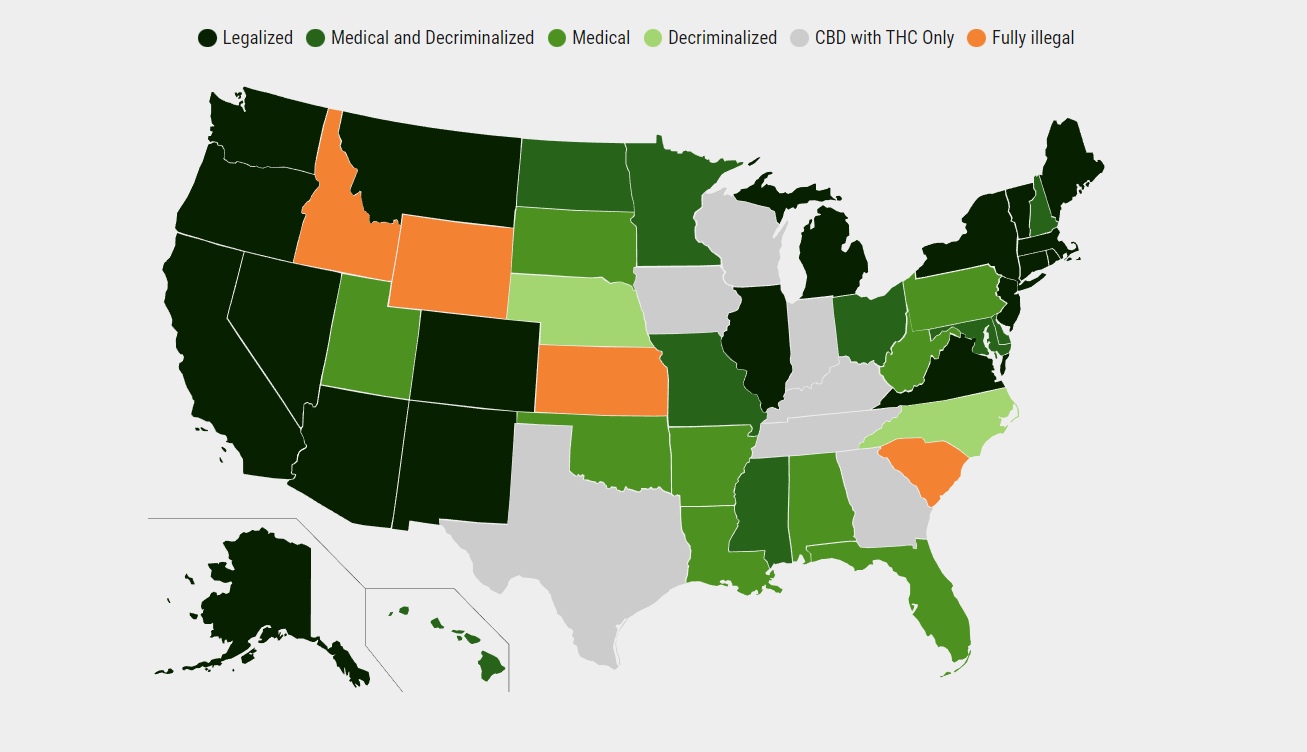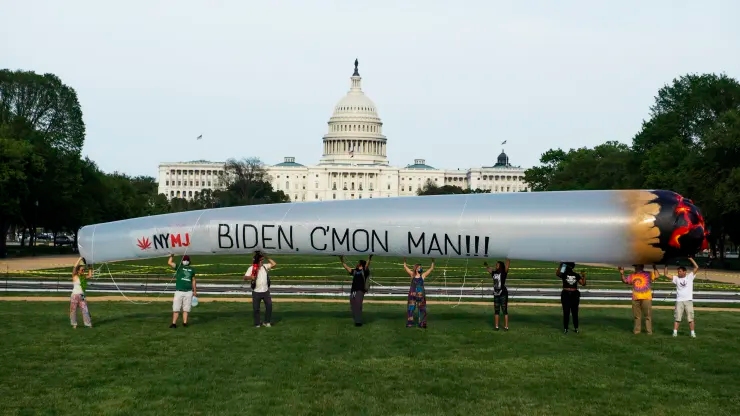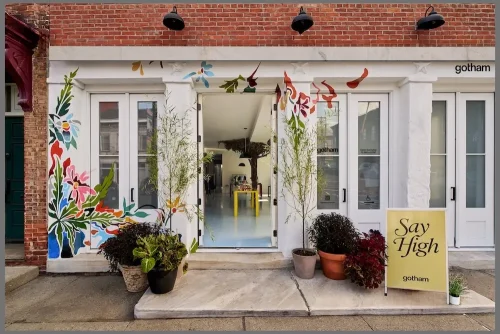President Joe Biden is pushing forward on campaign promises and has pardoned all prior federal convictions for simple possession of marijuana, including those convicted within the District of Columbia as well. This is a major step towards full decriminalization of cannabis, but we’re not quite there yet.
To clarify, simple possession of marijuana is referring to those convicted solely on that charge. Meaning, these pardons do not include those who were charged with producing or possessing with the intent to distribute.
While these pardons only extend to federal cases, the President called on governors across the nation to follow suit and pardon possession convictions at the state level.
“Too many lives have been upended because of our failed approach to marijuana. It’s time that we right these wrongs,” the President said.

President Joe Biden talks to reporters before boarding Marine One on the South Lawn of the White House, Thursday, Oct. 6, 2022, in Washington. (AP Photo/Evan Vucci)
More than 6,500 individuals with prior convictions for simple marijuana possession were impacted by the pardons, a White House official said, and thousands more through pardons under D.C. law. The pardons will not be extended to those who weren’t U.S. citizens and were illegally in the country at the time of their arrest, per CNBC.
“No one should be in jail just for using or possessing marijuana,” Biden said in a video announcing his executive actions. “It’s legal in many states, and criminal records for marijuana possession have led to needless barriers to employment, housing, and educational opportunities. And that’s before you address the racial disparities around who suffers the consequences. While white and Black and brown people use marijuana at similar rates, Black and brown people are arrested, prosecuted, and convicted at disproportionate rates.”
Although this proclamation does not decriminalize cannabis, Biden is instructing the secretary of Health and Human Services and the U.S. attorney general to review how marijuana is scheduled under federal law.
Currently, it is classified as a Schedule I drug alongside LSD and heroin. At this schedule, these drugs are deemed to have no accepted medicinal value and have a high probability for abuse. In contrast, methamphetamine and fentanyl are only Schedule II drugs, even though the CDC and federal government are currently addressing a fentanyl crisis and opioid abuse epidemic.
At this time, there are 39 states that have legalized cannabis for medicinal use, with 19 of those states passing laws for the adult-use of recreational cannabis. With hemp-derived CBD being available in a variety of still illegal states, it leaves only four states in the entire country where marijuana is completely illegal in all forms.

Map of Marijuana Legality by State | DISA.com
Right now, there is no firm timeline for when cannabis might be rescheduled. Given that midterm elections are coming up and this is the response we’re seeing from the administration, it’s not crazy to think that come 2024 election season, we will have seen the federal decriminalization of cannabis.
More Content
THE RELATIONSHIP BETWEEN BACKWOODS AND HIP-HOP
TERPENES FOR ANXIETY: 3 TERPS IN CANNABIS WITH STRESS-RELIEVING PROPERTIES
RAPPER WEED: WHICH RAPPERS HAVE CANNABIS PRODUCTS IN THE MARKET? WHO ACTUALLY HAS THE FIRE?
18 COMPANIES THAT DON’T DRUG TEST THEIR EMPLOYEES FOR WEED
7 TIPS FOR MARKETING CANNABIS AND CBD ON TIKTOK AND INSTAGRAM








